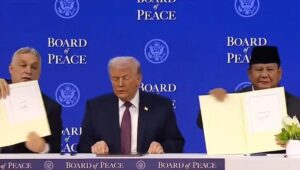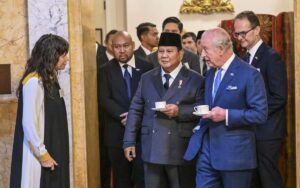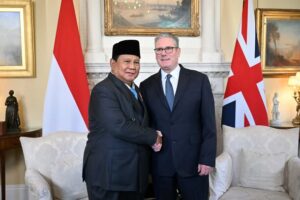Indonesia Finalizes Second NDC Climate Targets to Enhance Emission Reductions Across Key Sectors

Jakarta, The Gulf Observer: Indonesia is in the final stages of preparing its Second Nationally Determined Contribution (NDC), a comprehensive roadmap aimed at reducing greenhouse gas emissions across the energy, forestry, waste, agriculture, and marine sectors.
“The Second NDC is a roadmap that reflects Indonesia’s commitment to protecting the Earth, strengthening economic competitiveness, and building a more equitable future for all people,” said Minister of Environment and Forestry Hanif Faisol Nurofiq during a press briefing on Saturday.
The updated NDC reflects Indonesia’s intensified ambition to lead in global carbon emission reduction efforts and directly responds to mandates from the 28th UN Climate Conference (COP28), particularly Decision 1/CMA.5. This decision calls for global greenhouse gas emissions to peak between 2020 and 2025, with reductions of 43 percent by 2030 and 60 percent by 2035, based on 2019 levels of 1,147 million tons of carbon dioxide equivalent (CO2e).
To meet these targets, Indonesia must reduce emissions to approximately 459 million tons of CO2e, which requires integrated and coordinated action across all major sectors.
Minister Nurofiq emphasized the pivotal role of the energy sector, which contributes about 55 percent of Indonesia’s total emissions. The country aims to raise the share of renewable energy in its national energy mix to between 27 and 33 percent by 2035. This will be achieved through initiatives such as expanding electric vehicle adoption and improving energy efficiency.
In the forestry and land-use sector, Indonesia is pursuing its FOLU Net Sink 2030 target, which seeks to ensure that carbon absorption from forests exceeds emissions. This includes accelerating forest restoration and reducing the annual deforestation rate from 0.918 million hectares to below 0.3 million hectares.
Indonesia is also advancing its Zero Waste Zero Emission 2050 policy in the waste sector, while the agriculture sector will implement adaptation and mitigation strategies to reduce emissions and enhance food security.
The marine sector will focus on restoring critical blue carbon ecosystems such as seagrass beds and coral reefs, and protecting coastal zones from climate-related risks.
To monitor progress and enhance transparency, Indonesia has launched the National Registry System (SRN), a web-based platform that tracks climate action across sectors.
Minister Nurofiq also encouraged public participation through the Climate Village Program (ProKlim), which currently includes over 5,000 villages and aims to reach 20,000 by 2035.
“Climate change knows no borders. We will all be affected,” Nurofiq stated. “Let us realize the Second NDC as a collective movement.”


